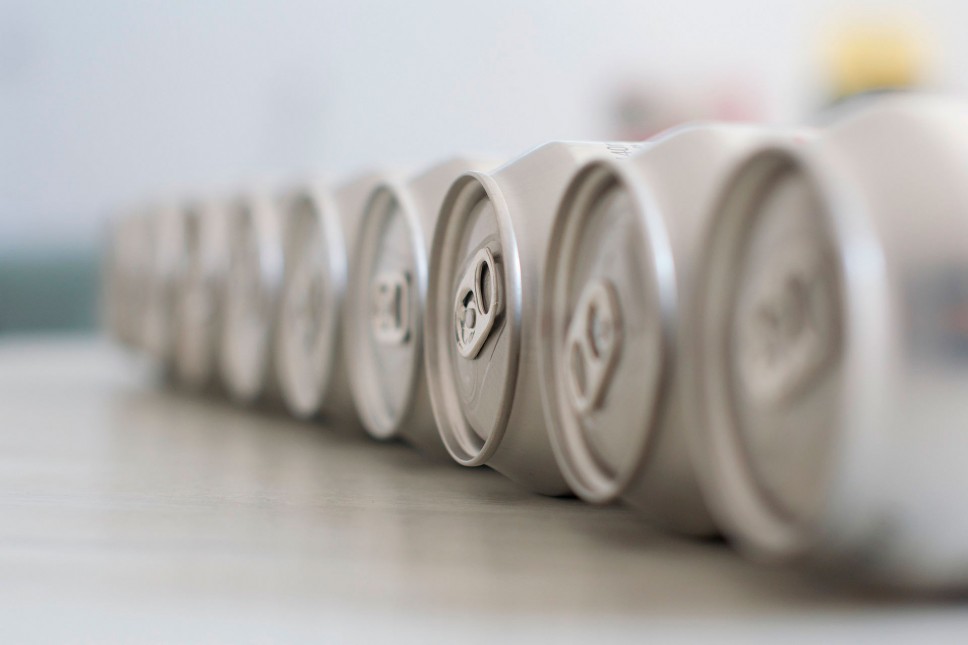BEVERAGE CANS SALES UP IN SPAIN
Link to the original article at Infopack.es
Spain established itself as the second most important market for beverage cans in Europe, only behind the United Kingdom.
In 2020, the consumption of beverage cans in Spain increased by 4.6% in volume, driven mainly by higher household consumption of beer, a figure that makes sense if we consider how the pandemic has changed the traditional trends of buying and consuming COVID-19. The small influx of visitors and the restrictions imposed on the activity of the hospitality sector have had a huge impact on the behavior of the sales channels of beverage cans moving part of the consumption to the home. The Socioeconomic Report of the Beer Sector 2020 prepared by Brewers of Spain, states that for the first time in history, beer consumption at home (56%) exceeded non-household consumption (44%) .

The can of drinks has been able to live up to a difficult year 2020 thanks to its main attributes: safety, perfect preservation of the product, lightness, comfort in the purchase, ease of stacking in the pantry or in the refrigerator and total real recyclability .
According to studies commissioned by the Association of Beverage Cans at IRI, in the modern food channel the sale of canned beer increased by 17.2%, being the hyper (with + 15.7%) and supermarkets between 2,500 and 1,000 m2, (with + 21.6%) those that increased their sales the most. On the other hand, the sale of canned soft drinks in this channel grew by 3.7%, mainly in hypermarkets (+ 8.1%) and in supermarkets between 2,500 and 1,000m2 (+ 6.2% ).
The beverage can: a packaging that spanish do like.
Metal Packaging Europe (association that brings together European producers of metal packaging: beverage cans, food, aerosols, lids, closures and other consumer products) commissioned IPSOS an opinion poll in 7 European countries for know the perception of can of drinks by consumer. At the end of 2020, 1,000 telephone surveys were carried out in Spain on people aged between 18 and 65. The results leave no doubt: 6 out of 10 respondents reported consuming cans of beverages at least once a week and even 11% do so daily (doubling the European average). Interestingly, the consumption of beverage cans is higher in the 25-65 age group than among 18-25 year olds.
Another finding of the study carried out by IPSOS is that, after consumption at home, 83% of Spaniards say they separate cans of beverages for recycling in the yellow container. Thanks to this the infinite recyclability the aluminum becomes a palpable reality.
In less than 60 days this aluminum returns to the hands of the consumer in the form of new tin or other objects, exemplifying the so-called Circular Economy.
61% of Spaniards consider the tin to be easy to recycle, but when people were asked what measures would be most effective to increase recycling when consumed outside the home, the most mentioned was, with 86% of the respondents, to have more containers for recycling.
Another interesting fact is that 59% of respondents point out that everything can be recycled from the can. And indeed it is, the can of drinks to not have labels, caps or other type of secondary components is a monomaterial container and to the being realized of a permanent material like the aluminum, can recycle again and again, without loss of quality and with significant energy savings. Permanent materials are not consumed, they are simply used.
The environmental benefits of the beverage can are increasingly known and valued by Spaniards. 57% know that recycling a can of drinks saves 95% of the energy needed to make it. Beverage cans are easy to separate and recycle with existing infrastructure and no new technologies or significant additional investments are required. However, we want to continue to improve and proof of this is that the roadmap of Metal Packaging Europe is aimed at 100% recycling of aluminum beverage cans in 2030. A goal that requires participation of all.
Another of the interesting conclusions drawn from the study carried out by IPSOS highlights the growing maturity of the Spanish population in environmental and waste management issues. 90% of respondents think that those who throw waste indiscriminately on public roads should be sanctioned and only 3% are against it. This result becomes even more evident when asked about this practice in the natural environment. In this case, 93% of respondents believe that those who throw waste in natural areas indiscriminately should be punished and only 1% say no.
In terms of consumption, nowadays more and more drinks are being chosen in cans as packaging. Such is the case of young white wines, craft beers, water, juices … The can of drinks, in addition to having ideal attributes for the conservation of the drink and its enjoyment, offers optimal control of the amount that it is desired to consume on every occasion.
Source: www.latasdebebidas.org

